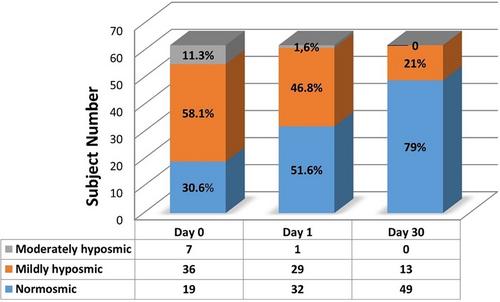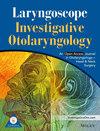The present study objectived to investigate the influence of Ramadan fasting (RF) on olfactory function.
Sixty-two participants were included in the current prospective study. The odor threshold and identification performances were determined by using the Connecticut Chemosensory Clinical Research Center (CCCRC) test initially (day 0) and on the first and last day (30th) of RF. Body weight (BW)s were measured initially and at the end of the study. The results were analyzed statistically.
The average of baseline and last-day BWs were 78.38 ± 12.96 and 78.36 ± 12.39 kg, respectively. No significant difference was determined in terms of BWs (p = .932, p > .05). In the evaluation of CCCRC test outcomes, significant differences were observed in the scores of butanol thresholds (p = .0001), odor identification (p = .0001), food-related odors identification (p = .0001), and the number of normosmic individuals (p = .0001) at different times (p < .05). The thresholds scores (p = .0001, p = .0001), the identification scores (p = .0001, p = .0001), food-related odors identification scores (p = .0001, p = .0002), and the number of normomic individuals (p = .001, p = .001) detected on 30th day were significantly higher than on 0th and 1st days; respectively (p < .05). Additionally, the threshold scores (p = .0001), the identification scores (p = .003), food-related odors identification scores (p = .007), and the number of normosmic individuals (p = .018) detected on day 1 were significantly higher than on day 0 (p < .05).
The current study demonstrated that Ramadan fasting enhances the olfactory detection threshold and odor identification scores, significantly improving the identification of food-related odors. The results may indicate that Ramadan fasting improves olfactory performance.
Level II.



